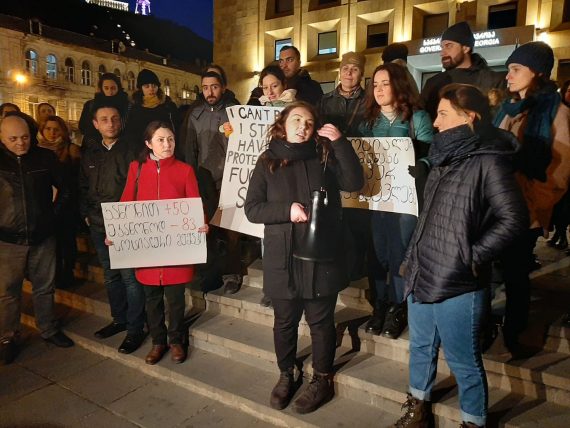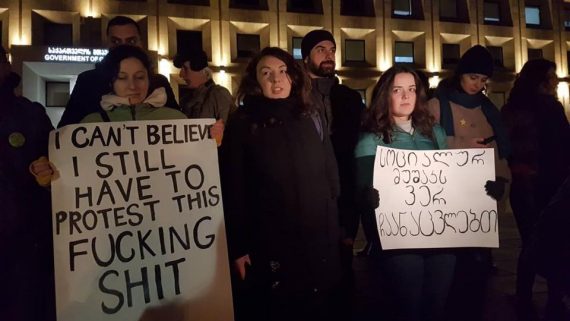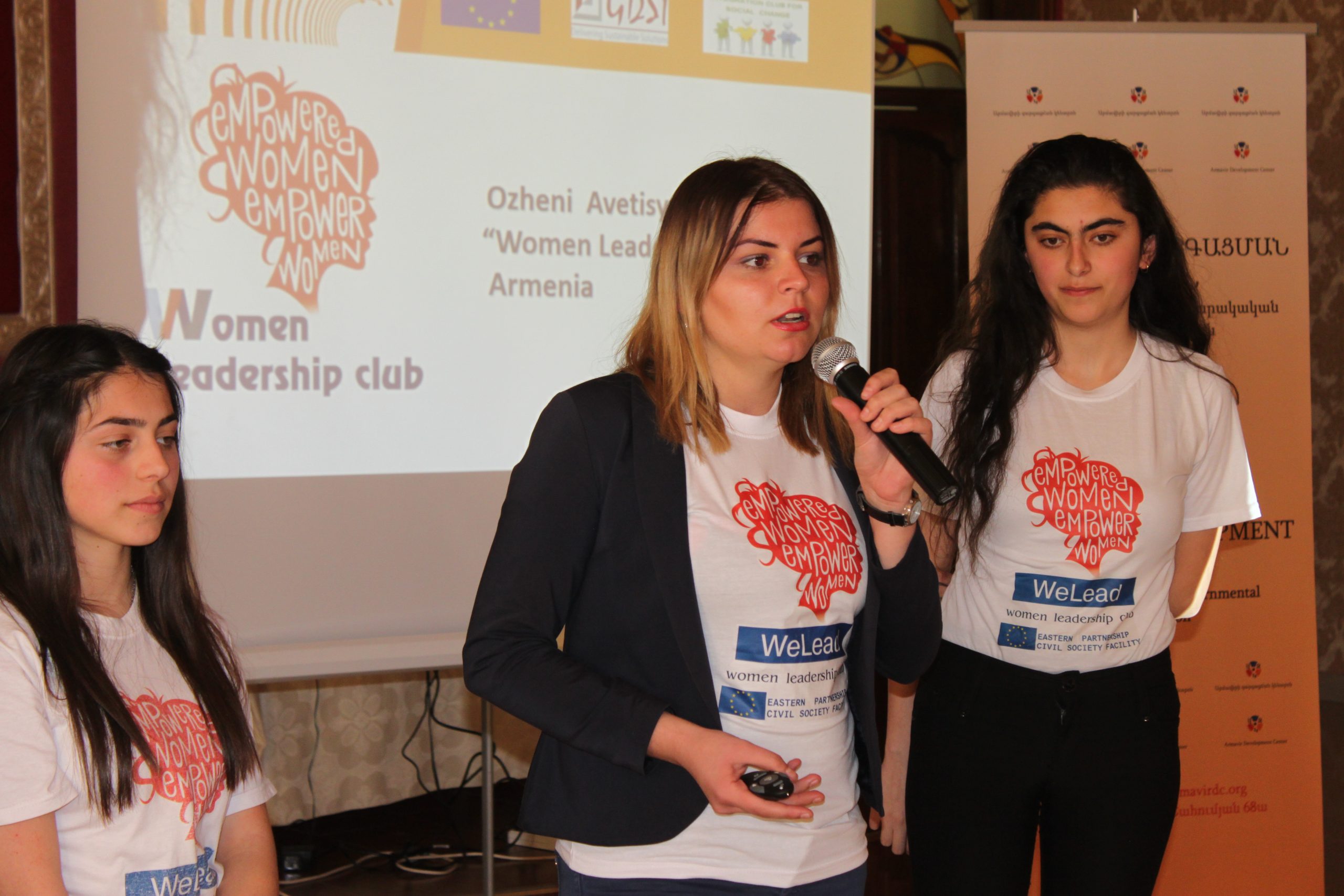by George Chanturia, Local Correspondent from Georgia.
 Last year there were serious protests and demands by the social workers for the improvement of working conditions as well as policies to better protect and support the final beneficiaries. The main problem was a serious lack of personnel, improper working conditions and salaries.
Last year there were serious protests and demands by the social workers for the improvement of working conditions as well as policies to better protect and support the final beneficiaries. The main problem was a serious lack of personnel, improper working conditions and salaries.
A year later, on January 29, 28 social workers were fired from work without notice. According to them, this is a warning for the remaining 200 to stay silent both on their working conditions as well as other political issues. Since then there have been serious discussions and protests in the media regarding this issue. On Friday 14th the meeting/demonstration took place in front of the State Chancellory demanding their full restoration for the job.
For many years now, the work of a social worker is one of the most respected ones for me. I mean honestly, what can be more decent than a work done for the society. By definition, “social work is a practice-based profession and an academic discipline that promotes social change and development, social cohesion, and the empowerment and liberation of people. Principles of social justice, human rights, collective responsibility and respect for diversities are central to social work. Underpinned by theories of social work, social sciences, humanities and indigenous knowledge, social work engages people and structures to address life challenges and enhance wellbeing.”[1] In other words, social workers try to improve the overall well-being of individuals, families, groups and societies especially of the most vulnerable ones such as children outside parental care or with special needs and the elderly.
If we look in the history books, the profession dates back to centuries. However, the current version goes back to the end of the 19th century when the first academic programs at higher educational institutions were created (e.g. Columbia University offered its first classes in 1898).[2] Despite that, it was not until the end of the 20th century when the profession was introduced in Georgia. In 2000 there were only 18 social workers. However, there were no programs and that is why we did not have specialized personnel. These people were either doctors or teachers.
Since then the profession has developed and academic programs are offered at the university level including at two of the most popular ones in Georgia – Tbilisi State University and Ilia State University. Currently there are about 250 social workers working in state institutions. They have thousands of cases since the number of beneficiaries are extremely high due to high rate of poverty, unemployment, violent social norms and other hardship of the country.
 Unfortunately, just like other decent works (e.g. teachers) the profession is not highly valued by the state. According to the research[3], the working conditions of social workers is extremely difficult. Specifically:
Unfortunately, just like other decent works (e.g. teachers) the profession is not highly valued by the state. According to the research[3], the working conditions of social workers is extremely difficult. Specifically:
- Overloaded work – having hundreds of cases at once
- Low salaries, uncompensated overtime work and other costs (e.g. transportation)
- Their salaries are very low Generally, social workers work more than 40-50 hours per week
- Inadequate infrastructure (e.g. separate meeting rooms for beneficiaries, heating)
- Lack of professional development opportunities
- Risks associated with physical security
Obviously, even though the social workers do their best, these problems are reflected on the final beneficiaries. Therefore, this is not an issue for just 28 social workers. Even if it was, I believe it should be a reason for serious protests and demand for action. However, these firings affect thousands of people and the system as a whole. Social Workers’ Union along with the CSOs is actively involved in these matters. However, definitely more public mobilization is needed!
Meanwhile, “Social work is Booming worldwide – because it’s proven to work!”[4]
[1] IFSW – IFSW General Meeting and the IASSW General Assembly
[2] National Association of Social Workers (NASW)
[3] EMC – Working Conditions and Challenges of the Social Workers at the Social Service Agency
[4] The Guardian
This article was produced by George Chanturia, the Project’s local correspondent and EaP Civil Society Fellow from Georgia in the framework of the EU-funded ‘Eastern Partnership Civil Society Facility – Regional Actions’ Project. Its contents are the sole responsibility of George Chanturia and do not necessarily reflect the views of the European Union or the Project. The photos are provided by the Local Correspondent.
Read more about our local correspondents here.




